Med students seek a ‘specialty bond’ that cements career path
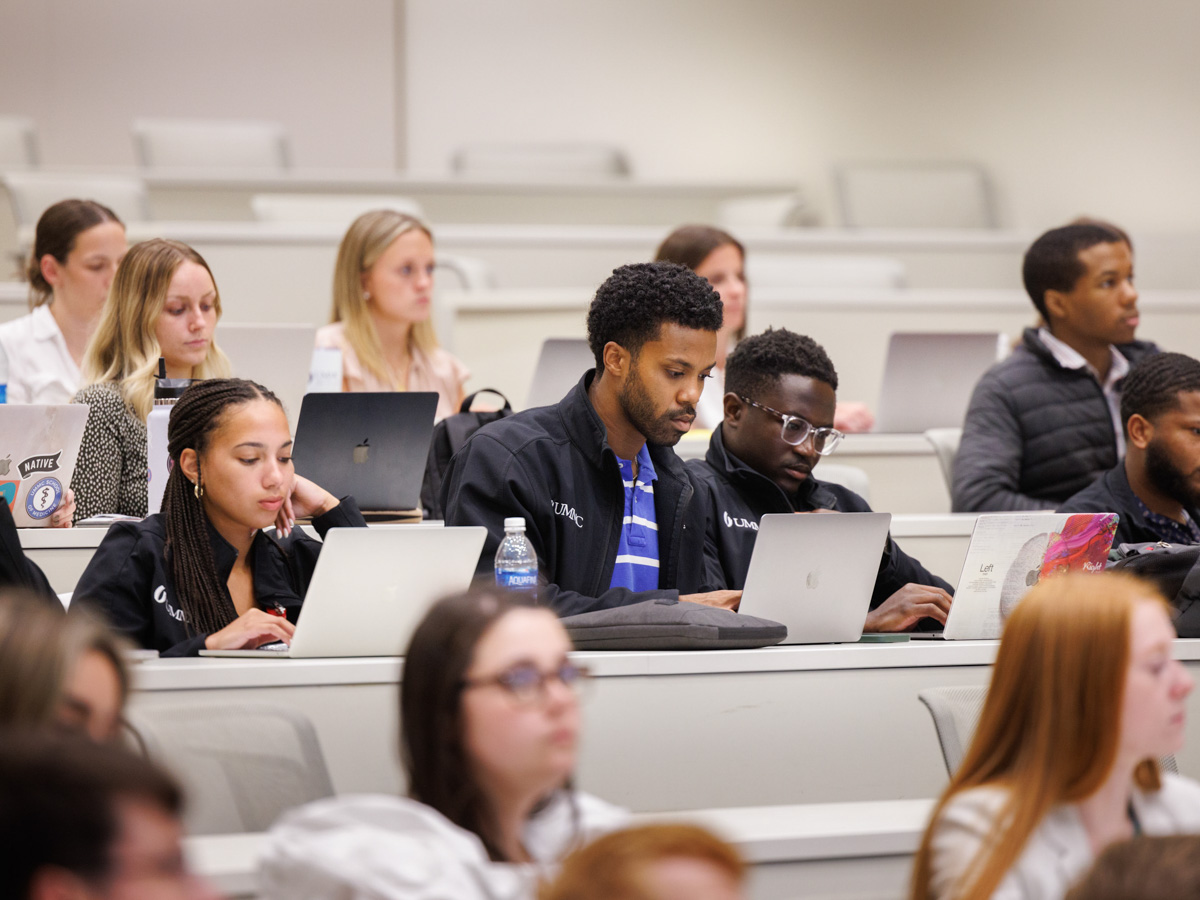
Editor’s note: This is an edited version of an article published in the Fall 2023 issue of Mississippi Medicine, the medical school alumni magazine)
Dr. Chelsea Mockbee had been in serious relationships before; then, she met the specialty of her dreams.
“I just fell in love with dermatology,” said Mockbee, assistant professor of dermatology at the University of Mississippi Medical Center.
Mockbee met her clinical soulmate, but only after she had finished one year of a different residency, then three years of another.
Her experience is not that rare, and, for medical students, it illustrates the value of sealing, as early as possible, the match that is meant to be for the next four or more years of their specialty training as residents.
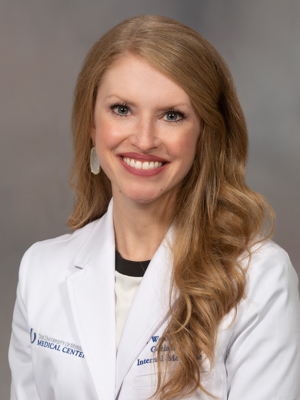
“The hardest part is figuring out what you like, what you’re drawn to. And finding the mentors to reach out to,” said Dr. Lyssa Weatherly, associate professor of medicine-geriatrics and assistant dean of student affairs at UMMC.
There’s much to like: 186 specialties, listed by FREIDA’s Specialty Guide, an American Medical Association tool for unravelling the selection process. They range from abdominal radiology to vascular surgery-integrated, but include deep-dive subspecialties, such as undersea and hyperbaric medicine.
At the Medical Center, 21 medical and surgical residency programs call to students; about 75 percent of them have picked one by the end of their third year, Weatherly estimated.
For a graduating class of about 165 students, Weatherly is the residency match dean for 30 to 40 of them. “Usually only two or three change their minds,” she said.
In her own days as a student, she was one of them, shocked into an 11th hour conversion.
Fatigued and fulfilled
What advice can medical students find when seeking their permanent heart’s desire?
Beyond the aforementioned FREIDA, there are many other tools, services and databases.
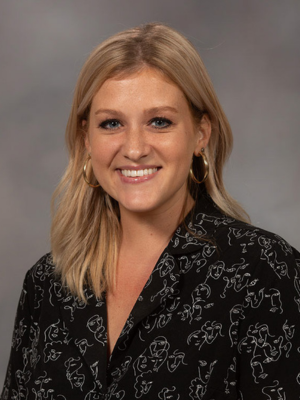
But, Dr. Kallye Baggett, a UMMC surgery resident, says it may boil down to this: “Think of the lifestyle you will want to have afterward. Think about what being an attending physician in that field looks like – and can you live with that?
“Think beyond the residency; residency is not real life.”
Every year, in mid-March, Residency Match Day comes, the day fourth-year medical students learn where their specialty training starts.
On March 17, 2023, Baggett matched in surgery-preliminary at UMMC, having changed her match mind four months earlier.
“Match applications are done by the end of September,” Baggett said. “Interviews take place in the fall.”
Baggett had finished all of her residency applications, done all of her interviews. Her letters of recommendation were in. She was on the road to an emergency medicine residency until she realized that road wasn’t up her alley.
“I had been having doubts,” she said. “At first, I didn’t know if it was just anxiety; I wasn’t sure where it was coming from.”
Baggett had enjoyed her emergency medicine rotation; she appreciates the work-life balance EM affords compared to other specialties. “But I never had that same feeling I had on surgery – and I had never worked harder, never felt so tired, and never felt so fulfilled,” she said.
A surgery ICU rotation late in the game may have compelled her to surrender to her doubts.
“It was scary. Interviews for residency spots were already wrapped up.” It was too late to do another categorical, or full residency, match. “Everyone was encouraging, though,” she said. “They told me, ‘You need to go where your heart is.’”
She applied to, and was awarded, a preliminary match. She is now seeking another match in a five-year surgery program and will find out the results of the match in March.
“I decided it would be worth it to do what fulfills me and energizes me the most, to do what I love,” she said.

To that end, Baggett found the most valuable guidance came from people who know her well. “Including Dr. Weatherly,” she said.
It probably helped that Weatherly had been through this herself, deciding just five months before her Match Day that, despite all the good times urology had shown her, internal medicine had her heart.
It happened during a urology rotation, Weatherly said. “It was an interaction with an older gentleman concerned about prostate cancer.
“We talked about 30 minutes. I felt like we had a connection. And then he said, ‘Thank you for talking with me, but I don’t make any decisions until I’ve talked to my doctor.’
“I realized then that he would never view me as his doctor – I don’t mean his specialist doctor; I mean his special doctor.” His primary care doctor.
“People care more about their primary care doctor’s opinions, even though specialists know so much about the patients’ illnesses,” Weatherly said. “I knew, in my heart of hearts, I wanted to be the doctor my patient trusted the most.”
The year after she graduated from medical school, Weatherly was named Internal Medicine Student of the Year, in 2013.
She had found her place, as would her classmate, Chelsea Mockbee, many years later.
Decisions and dermatology
As a child growing up in Fulton, Mockbee had been troubled by asthma and sinus problems.
While completing her internal medicine residency at UMMC, she paid a kind of medical homage to her childhood; she sought fellowships in allergy and immunology, a subspecialty that overlaps with dermatology – which was not a department at the Medical Center until the year after she became a doctor.
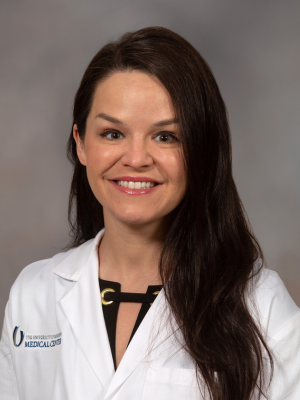
“So, I did a one-month dermatology rotation,” she said. That month stretched into three years. She became a fully trained dermatologist in 2019. This was on top of a year of training she had completed years earlier in her first specialty choice: pathology.
Was dermatology right for her? As chief resident, Mockbee was the winner of the Robert S. Caldwell, M.D. Award, reserved for the top resident among all specialties at UMMC.
One Caldwell presenter was Dr. Robert Brodell, the founding chair of dermatology, who is now – irony alert – professor and chair of pathology, the specialty Mockbee picked first.
“I don’t know if there’s a magic potion for making a choice,” she said. “Sometimes I believe it’s just your experiences that will guide you to the right path.
“Maybe if we had had a dermatology program when I was a student, I could have avoided everything else.”
The faculty member she answers to directly certainly knows how she feels.
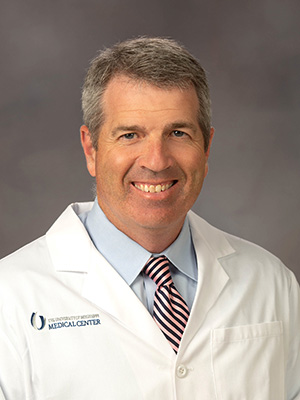
Dr. Jeremy Jackson was a second-year internal medicine resident at UMMC anticipating a cardiology fellowship when he heard the words that changed his mind and his life: “‘We really need a dermatologist.’”
That was the reaction of Dr. Rathel “Skip” Nolan to the sight of so many patients with skin disorders. Today, Nolan is UMMC professor emeritus of medicine-infectious diseases, and Jackson is professor and chair of dermatology.
“What Dr. Nolan said made me realize that here was something with potential for growth and something the University needed,” Jackson said.
Dermatology, as a department, would not appear at UMMC for several more years. So, Jackson finished his internal medicine residency at UMMC, then left for a dermatology residency at the University Alabama at Birmingham, knowing he would come back to Mississippi – which he did, to a brand-new Department of Dermatology.
“I didn’t have it figured out until seven years in,” Jackson said, “and I wouldn’t advise doing two residencies to anybody; but I do recommend that students get exposed to every specialty they might be interested in; that’s where you figure it out.
“I love internal medicine and love the connections I built from those years, but, certainly, I love what I’m doing now; it’s what I’m supposed to be doing.”
Above all, Jackson knew he was supposed to be a doctor. As did Dr. Kierra Jones – after a journey of 6,000 miles.

Rotations and revelations
When Jones was a Tougaloo College junior, there were at least two things she had never seen and probably didn’t know she wanted to see: Ghana and a hysterectomy.
She saw both during a summer internship. Her mission was to research a subject that is her passion – public health – in an African country far from Cleveland, her Mississippi hometown.
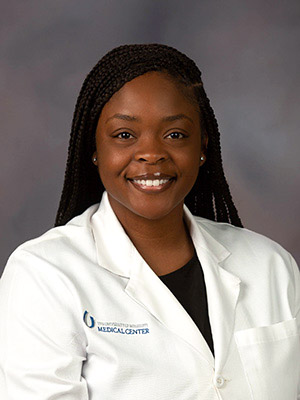
“I wanted to be an occupational therapist,” she said, “but, in Ghana, I saw my first hysterectomy. The woman was in a lot of pain from massive pressure on her uterus.
“Seeing how surgeons were able to give her relief was amazing; just crazy. So, I said, ‘I’m going to med school.’”
During a third-year rotation, on ob-gyn, she found the specialty with her name on it.
“It was three o’clock in the morning, and I was still happy,” she said. “If you can smile at 3 a.m. on your third patient, then you know this is it.
“I saw two or three C-sections. I was reminded of that woman in Ghana; I was drawn in all over again.”
After graduation last May, she began her ob-gyn residency at UMMC, caring for a population she was meant to serve. “I like working with women in general and, as a black woman, I’ve always had a desire to address health disparities for African American women in obstetrics,” she said.
“I believe I have chosen the best specialty.
“I told my mom I wake up every morning with a smile on my face.”


